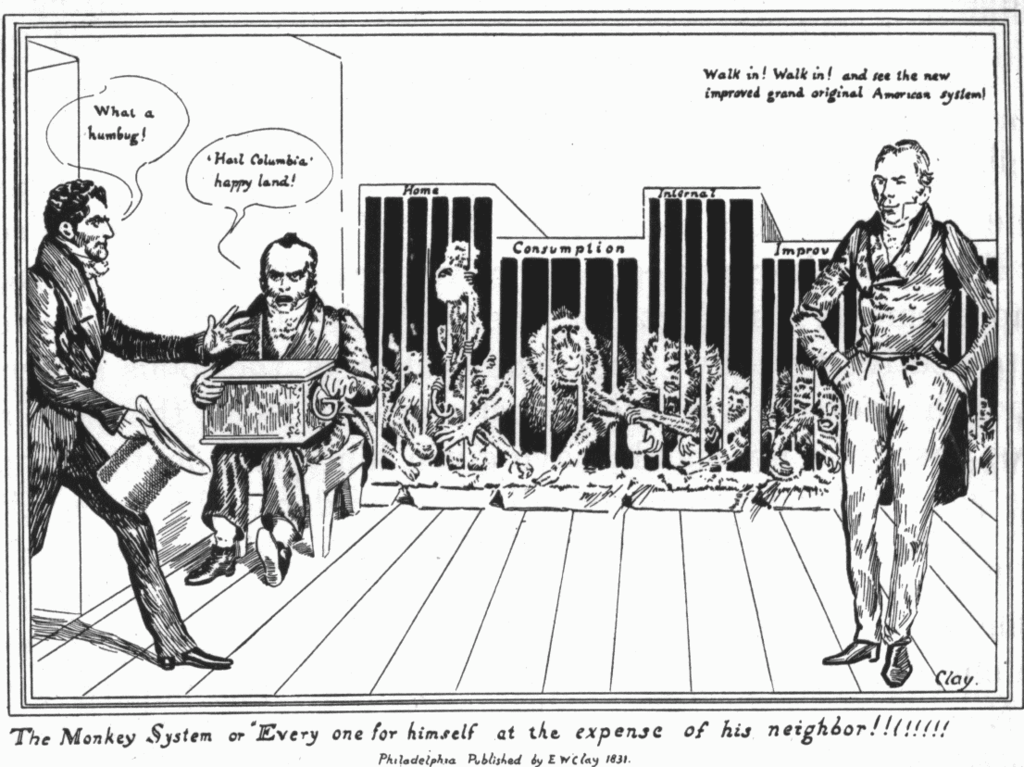It's hard to imagine a clearer example of circular reasoning: Slavery is an affront to human liberty, but ending slavery would supposedly be even worse.
~ Tom DiLorenzo, The Real Lincoln, pp. 14-15
 |
| Henry Clay 1890-1893 |
"The social system of private property and limited government is the only system that tends to debarbarize all those who have the innate capacity to acquire personal culture." ~Ludwig von Mises
 |
| Henry Clay 1890-1893 |
 |
| Marching in Step to the Music of the Union |
His income from this business apparently amounted to what he needed [to pay off his personal debt]: three thousand dollars a year from the bank as chief counsel, more for appearing in specific cases; and a sizable amount of real estate in Ohio and Kentucky in addition to the cash... When he resigned to become Secretary of State in 1825, he was pleased with his compensation.Who wouldn't be pleased? In current dollars the amount of money Clay earned in just two years would be nearly a million dollars.
 |
| Henry Clay 1894 |
 |
| First Bank of the United States |
 |
| Henry Clay 1873 |

 |
| Map of Louisiana Purchase 1904 |
